Title search results
Showing 1 - 20 of 40139 items
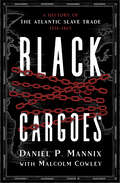
Black Cargoes: A History of the Atlantic Slave Trade 1518–1865
By Daniel P. Mannix, Malcolm Cowley. 1900
&“A carefully understated but chilling account of the whole 3 ½ centuries during which 15 million Africans were snatched from…
their homes and delivered into slavery in the New World.&” —Time In 1518, the Atlantic slave trade began with the landing in the West Indies of the first enslaved people directly from Africa. These were the victims of a forced migration that was more callous and immensely larger, in the end, than any other such movement of modern or ancient times. Written in 1962, Black Cargoes attempts to tell where these exploited people came from, how they were enslaved in Africa, how they were purchased by sea captains, how they were packed into the hold like merchandise (although with greater losses in transit), and how the survivors were sold in West Indian and American markets. Author Daniel P. Mannix brings the horrifying spectacle to life, devoting attention to the engrossing and often fatal adventures of sea captains, smugglers, African agents, and sailors. But he never wavers from delivering &“a clear and frightening record of man&’s ability to allow the lust for money to deaden his sensibilities&” (The Journal of African American History). &“Both fascinating and horrifying. . . . It embodies the most careful research, and it also possesses literary charm.&” —Allan Nevins, Pulitzer Prize–winning author &“A sound book on a rich subject . . . it is the long-needed single volume covering all the salient angles of the evil, old trade.&” —The New York Times Book Review &“It translates the slave trade from statistics and conclusions into the sum total of individual human experiences.&” —Los Angeles Times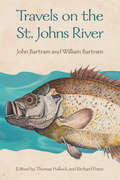
Travels on the St. Johns River
By William Bartram, John Bartram. 2016
A selection of writings from naturalists John and William Bartram, who explored Florida in 1765In 1765 father and son naturalists…
John and William Bartram explored the St. Johns River Valley in Florida, a newly designated British territory and subtropical wonderland. They collected specimens and recorded extensive observations of the region’s plants, animals, geography, ecology, and Native cultures. The chronicle of their adventures provided the world with an intimate look at La Florida.Travels on the St. Johns River includes writings from the Bartrams' journey in a flat-bottomed boat from St. Augustine to the river's swampy headwaters near Lake Loughman, just west of today’s Cape Canaveral. Vivid entries from John's Diary detail the settlement locations of Indigenous people and what vegetation overtook the river's slow current. Excerpts from William's narrative, written a decade later when he tried to make a home in East Florida, contemplate the environment and the river that would come to be regarded as the liquid heart of his celebrated Travels. A selection of personal letters reveal John's misgivings about his son's decision to become a planter in a pine barren with little shelter, but they also speak to William's belated sense of accomplishment for traveling past his father's footsteps.Editors Thomas Hallock and Richard Franz provide valuable commentary and a modern record of the flora and fauna the Bartrams encountered. Taken together, the firsthand accounts and editorial notes help us see the land through the explorers' eyes and witness the many environmental changes the centuries have wrought.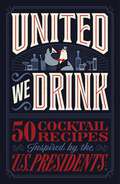
United We Drink: 50 Cocktail Recipes Inspired by the US Presidents
By Harper Celebrate. 2024
Drink like a true American this election season with fun and creative presidential-themed cocktails! Whether you like a more conservative…
pour or are liberal with your libations, let's embrace the pursuit of happiness.It's election season, and if you're anything like most Americans, you like your ballots with a side of booze and your suffrage accompanied by something tall and stiff. In United We Drink, you're invited to celebrate the nation one presidential-themed cocktail at a time.Whether your political views come "with a twist" or are a little more "old-fashioned," this book has you covered. Inside this must-have bartender handbook you'll find:45 easy cocktail and mocktail recipes inspired by each of the presidents5 themed drinks for Republicans, Democrats, and Independents, with guided cutting lines so you can cut out whatever doesn't suit youInspirational, artfully designed quotes from Founding Fathers and former presidents Some of the all-American, presidentially-themed cocktails featured in United We Drink include:Cherry Nelson (inspired by George Washington)Massachusetts Mimosa (inspired by John Adams)Apple Rosemary Gin and Tonic (inspired by Abraham Lincoln)Irish Hot Chocolate (inspired by Chester A. Arthur)Hot Teddy (inspired by Theodore Roosevelt)Mezcal Margarita inspired by (Dwight D. Eisenhower)Frozen Strawberry Jackuiri (inspired by John F. Kennedy)Peaceful Peach Spritzer (inspired by Jimmy Carter) United We Drink is a must for:Election-night partiesPresidential debatesFourth of July get-togethersMemorial Day cookoutsAnd any night you're just feeling a little patriotic. With accessible ingredients and easy-to-follow directions, these recipes are made with the home bartender in mind. United We Drink is your party ticket to good times and fabulous drinks no matter which side of the aisle you sit on. So, raise your glass to America and enjoy something tall, refreshing, and cool this election season (or any season for that matter)!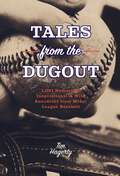
A wild bull on the field, a fly ball caught by a train conductor, a pitcher taking the mound barefoot—Minor…
League Baseball has been played across the country in cities large and small for more than a century, and there are thousands of entertaining and improbable stories to tell from it.Join professional baseball broadcaster Tim Hagerty for a journey through the zaniest Minor League stories in Tales from the Dugout. Given its long history, it is no surprise that the game has encountered some bizarre things over the years. This humorous and outlandish collection of stories is sourced from newspaper archives and the Baseball Hall of Fame Library in Cooperstown, New York, and includes a foreword by former MLB All-Star Billy Butler. Whether you're a baseball fanatic or just a fan of sports history, this book captures the spirit of the game.This compendium of minor league shenanigans includes:HOLE IN ONE: In 1942, a Milwaukee Brewers batter hit a low line drive that bounced down the right field line. He rounded the bases while confused Louisville Colonels fielders searched for the ball. They eventually found it inside a gopher hole.MONKEYING AROUND: A chimp's escape turned a Southern Association game into pandemonium on July 17, 1909. "Henry the Chimpanzee," the New Orleans Pelicans' official mascot, busted from his cage and chased players around the field. The chimp then went after fans, who ran from him screaming. The game was delayed a few minutes while Henry was restrained.HEADLESS CRUSHER: A police department in Ohio got a call about a missing head. The Lake Erie Crushers' mascot's head was stolen in 2011, forcing the mascot to miss a few home games. After learning through media reports that police were investigating, the thief returned the head by inconspicuously placing it under the ballpark's tarp.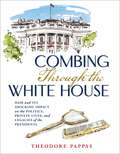
Discover a fascinating and novel look at the U.S. presidents, the first families, and American history—all through the lens of…
hair. With meticulous detail, engaging storytelling, and full-color visuals, encyclopedia editor Theodore Pappas combs through American history, teasing out long-forgotten and little-known ways that hair has influenced the presidency and the public and private lives, personal scandals, and tragedies of the men and women who have occupied the White House.Go deep into the history of such topics as:Abraham Lincoln's famously ridiculed appearance and the surprising role hair played in both his presidency and assassinationJohn F. Kennedy's connection to James Bond and how hair factored into his vast image-making and infidelitiesThe lush tradition of collecting hair as a way of honoring leaders, remembering our loved ones, and preserving their memoriesScientific hair analysis and how DNA has been used to solve long-standing presidential mysteriesThe connection of hair to the lives, loves, scandals, and tragedies that shaped presidents, first ladies, and the nation at large This unique window into the past shines entertaining new light on the decisions, relationships, and tragedies that have shaped the role of the president and the place of the U.S. in the world. Whether you're interested in presidential trivia or historical mysteries, Combing Through the White House personalizes the past through an element of life we can all relate to—hair—giving us new glimpses into our country and even ourselves.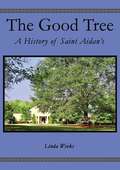
The Good Tree: A History of Saint Aidan’s
By Linda Weeks. 2020
It was a project like no other. There was an energy right from the first meeting. Not everyone knew each…
other but it didn&’t matter. No-one knew how to do this thing but that didn&’t matter either.In 1993, the Right Reverend Frank K. Allan, 8th Bishop of the Episcopal Diocese of Atlanta, was keeping an interested eye on the rapid development of a northern suburb known as Johns Creek. He began to think about the Christian souls who were settling there, putting down roots to begin a new life and raise their children in a new city. Where would they worship? How would they express their Christian faith? What could he do meet their needs?The Good Tree is the story of a group of parishioners from Saint David&’s Episcopal Church in Roswell who got together to build a mission church in nearby Alpharetta. Beginning with prayer and enthusiasm and guided by the inspirational Father Noel Burtenshaw, the founding of a new mission church was a deeply spiritual and yet very human journey for all concerned. The Good Tree describes that journey, from its unexpected beginnings, through the first twenty-five years of highs and lows, twists and turns, including the difficult period that followed the ordination of Canon Gene Robinson as Bishop of New Hampshire.If you ever wondered how a church building comes to be in a particular place at a particular time, or if you are interested in exploring the expression of Christianity in the modern world, or if you are simply interested in reading an inspiring story about a group of ordinary people with a determined Christian purpose, then you will enjoy reading The Good Tree.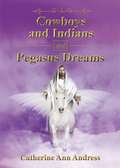
Cowboys and Indians and Pegasus Dreams
By Catherine Ann Andress. 2020
This is the story of a third generation Texas woman born in a small town in the center of the…
Texas Panhandle. Over protected and reared to be a wife and mother just as all the women in her family had been, her goal became just that, to be a wife and mother and to have a family of her own.Fate intervened, however, at every crossroad when her difficult first marriage to a rancher ended and she faced life as a single parent. After remarrying a few years later she was soon tragically widowed and, at 31, had to bury the man she loved so dearly. He was a Pathologist whose own terrible twist of fate occurred at the beginning of his medical career when, as an intern at Parkland Hospital in Dallas, he assisted with the initial postmortem exam on our late President John F. Kennedy. From that moment he was forced to live with deadly secrets which severely altered his life forever.This story focuses on the author's great struggle to believe in herself to face the world alone and the unbelievable frustration of having to again and again tolerate and rise above numerous legal entanglements, drastic financial losses and, on top of everything else, employment injustices; all this while rearing her daughter with no one by her side to believe in her. In midlife, she was brought to her knees after having a series of tragic events when she even prayed to die... this time she was led to the Great Throne of God&’s Grace.In writing this she was able to revisit and immortalize those she loved so dearly after losing precious loved ones tragically...a life impossible but for the grace of God and for scriptures such as: Proverbs 3: 5 & 6, &“Trust in the Lord with all thy heart and lean not unto thine own understanding, in all thy ways acknowledge Him and He shall direct thy paths&”; Genesis 50:20, &“But as for you, ye thought evil against me, but God meant it unto good&”; and Proverbs 16:3, &“Commit to the Lord whatever you do and He will establish your plans&”.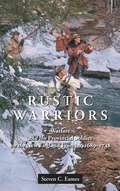
The early French Wars (1689-1748) in North America saw provincial soldiers, or British white settlers, in Massachusetts and New Hampshire…
fight against New France and her Native American allies with minimal involvement from England. Most British officers and government officials viewed the colonial soldiers as ill-disciplined, unprofessional, and incompetent: General John Forbes called them “a gathering from the scum of the worst people.” Taking issue with historians who have criticized provincial soldiers’ battlefield style, strategy, and conduct, Steven C. Eames demonstrates that what developed in early New England was in fact a unique way of war that selectively blended elements of European military strategy, frontier fighting, and native American warfare. This new form of warfare responded to and influenced the particular challenges, terrain, and demography of early New England. Drawing upon a wealth of primary materials on King William’s War, Queen Anne’s War, Dummer’s War, and King George’s War, Eames offers a bottom-up view of how war was conducted and how war was experienced in this particular period and place. Throughout Rustic Warriors, he uses early New England culture as a staging ground from which to better understand the ways in which New Englanders waged war, as well as to provide a fuller picture of the differences between provincial, French, and Native American approaches to war.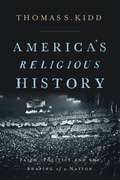
America's Religious History: Faith, Politics, and the Shaping of a Nation
By Thomas S. Kidd. 2019
Religion, race, and American history.America's Religious History is an up-to-date, narrative-based introduction to the unique role of faith in American…
history. Moving beyond present-day polemics to understand the challenges and nuances of our religious past, leading historian Thomas S. Kidd interweaves religious history and key events from the larger story of American history, including:The Great AwakeningThe American RevolutionSlavery and the Civil WarCivil rights and church-state controversyImmigration, religious diversity, and the culture warsUseful for both classroom and personal study, America's Religious History provides a balanced, authoritative assessment of how faith has shaped American life and politics.
Massachusetts 101: 101 events that made Massachusetts
By Christopher Kenneally. 2005

The Gazette girls of Grundy County: horse trading, hot lead, and high heels
By Gwen Hamilton Thogmartin. 1994
It was 1933 when Gwen and Ardis Hamilton bought the Grundy County Gazette. America was in the throes of the…
Depression. The Gazette Girls of Grundy County tells a captivating story of two women's adventures in a small midwestern town. Filled with hilarious stories of small-town life, The Gazette Girls of Grundy County is a remarkable story of two women coming of age in the newspaper business and an extraordinary slice of Americana
The witchcraft delusion in colonial Connecticut, 1647-1697
By John M Taylor. 2015
In colonial New England, laws against witchcraft were passed in Massachusetts, Connecticut, and New Haven in the mid-seventeenth century. The…
most notorious episode of persecution occurred in 1692 in Salem, where 20 persons were executed as witches. From the 1660s to the 1690s, there were ongoing witch-hunts and trials in the colonies of Connecticut and New Haven. Several chapters of The Witchcraft Delusion are devoted exclusively to these accounts, most of which have been selected from colonial records and from original depositions. Each of the cases is presented using actual trial testimony. Adult. Unrated
From my Nevada notebook
By Maude Sawin Taylor. 1965
A collection of personal observations, essays, and stories written by a person deeply immersed in the Nevada landscape, capturing the…
unique culture, history, and natural beauty of the state through their own experiences and perspectives, often drawing from detailed notes taken while exploring Nevada's diverse regions. Adult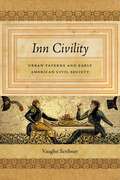
Inn civility: urban taverns and early American civil society
By Vaughn Scribner. 2019
"From exclusive "city taverns" to seedy "disorderly houses," urban taverns were wholly engrained in the diverse web of British American…
life. By the mid-eighteenth century, urban taverns emerged as the most popular, numerous, and accessible public spaces in British America. These shared spaces, which hosted individuals from a broad swath of socioeconomic backgrounds, eliminated the notion of "civilized" and "wild" individuals, and dismayed the elite colonists who hoped to impose a British-style social order upon their local community. More importantly, urban taverns served as critical arenas through which diverse colonists engaged in an ongoing act of societal negotiation." -- Goodreads
Country school days: true tales of a Wisconsin one-room school
By Larry Scheckel. 2021
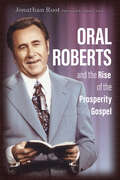
Oral Roberts and the Rise of the Prosperity Gospel
By Jonathan Root. 2023
"In 1946, God gave Oral Roberts a new Buick.And this just one of many miracles the young, broke preacher learned…
to expect, as Oral Roberts would go on to build an evangelistic ministry worth millions of dollars, a medical complex, and a university. How do we interpret the life of a man who seemed to combine rampant consumerist excess with a sincere devotion to the gospel? Seeking to answer this question, Jonathan Root weaves together accounts of Oral Roberts's life in a balanced and engaging narrative. This fresh biography covers Roberts's early life during the Great Depression in Oklahoma, his family's financial struggles during his early career as a Pentecostal preacher, his healing ministry's explosive growth in popularity via the new media of radio and television, and his empire's eventual collapse. Root pays special attention to how Roberts introduced the "prosperity gospel" to American Protestants with his affirmation that God intends his followers to be both spiritually and physically fulfilled."-- Amazon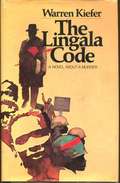
Musical stages: an autobiography
By Richard Rodgers. 1975
The autobiography of Richard Rodgers, the dean of American musical theater, from the day he saw his first Broadway show…
in 1909 and was hooked, his only ambition thereafter was to compose for the stage. Though he began when he was sixteen, it was not until he was twenty-two that he achieved success with "The Gaieties." The rest is musical history
Larger than life: Lyndon B. Johnson and the right to vote
By Anne Quirk. 2021
Keenly known for both his triumphs and his failures, Lyndon B. Johnson was one of the most complex and compelling…
presidents in US history. With engaging storytelling, Quirk paints a rich portrait of Johnson's presidency, celebrating the accomplishments of his Great Society programs while refusing to shy away from his catastrophic decisions regarding Vietnam and the summer riots of 1967. Larger Than Life presents striking parallels to today's political arena: an outsize character presiding over a divided nation but to different ends. For grades 5-8
People of the troubled water: a Missouri River journal
By Nancy M Peterson. 1988
Fascinating stories of fearless men and women who penetrated the far west. These pioneers attempted to assault the Missouri River--the…
longest if not the most treacherous river in America--for reasons ranging from monetary profit to sheer excitement and high adventure
Sierra stories: tales of dreamers, schemers, bigots, and rogues
By Gary Noy. 2014
The author of Gold Rush Stories shares tales of the larger-than-life characters from the history of the legendary Sierra Nevada…
mountain range. With its 14,000-foot granite mountains, crystalline lakes, conifer forests, and hidden valleys, the Sierra Nevada has long been the domain of dreams, attracting the heroic and the delusional, the best of humanity and the worst. Stories abound, and characters emerge so outlandish and outrageous that they must be real. Adult. Some violence